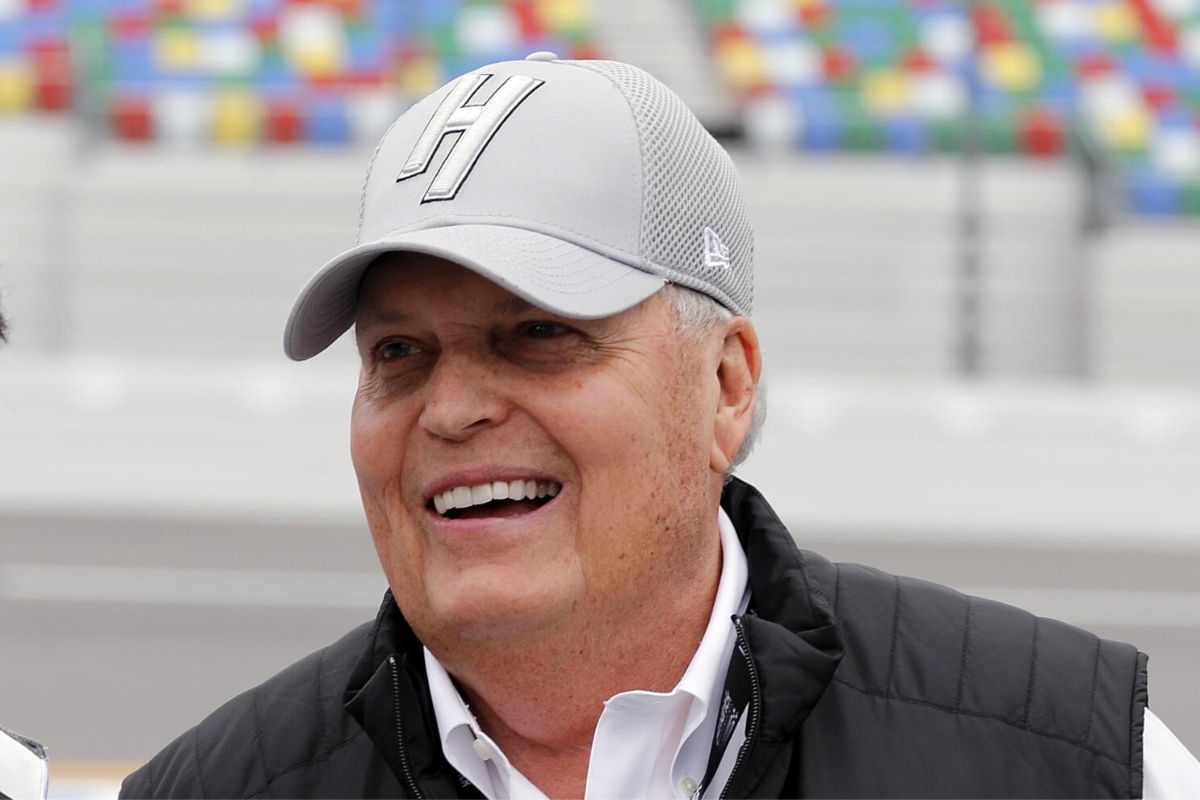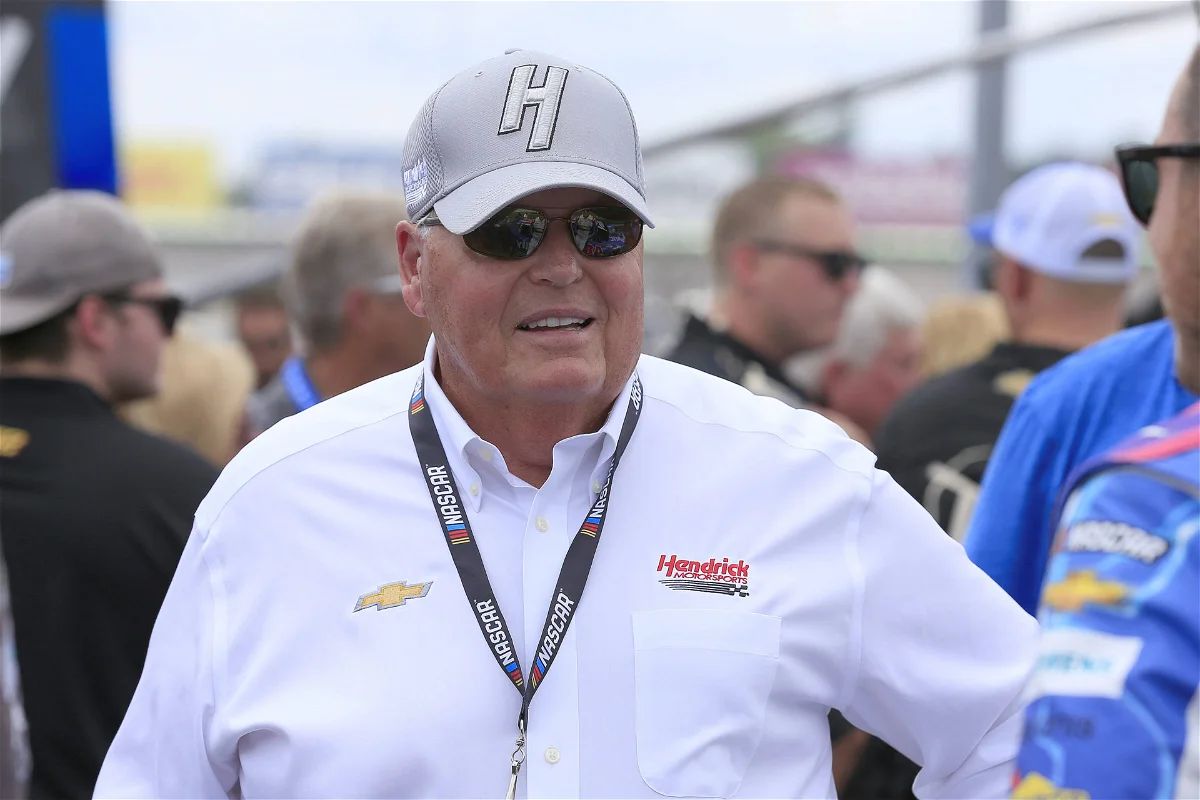Rick Hendrick’s Take on EVs: In the evolving arena of motorsports, Rick Hendrick’s perspective on NASCAR’s standoff with manufacturers over the adoption of electric vehicles (EVs) highlights a crucial moment for the sport. As manufacturers increasingly commit to sustainability, Rick Hendrick emphasizes the necessity of NASCAR’s adaptation to remain competitive and relevant, yet he also accentuates the importance of honoring the sport’s rich heritage and its loyal fan base.
Key Takeaways
- Rick Hendrick emphasizes the need for manufacturer unity to successfully integrate EVs into NASCAR.
- He acknowledges resistance due to NASCAR’s deep-rooted traditions and fan base expectations.
- Rick Hendrick highlights economic concerns and the high investments required for EV infrastructure.
- He stresses the importance of balancing innovation with NASCAR’s identity to maintain fan engagement.
- Rick Hendrick calls for strategic planning to align NASCAR with evolving environmental and market trends.
The Electric Vehicle Dilemma in NASCAR
As NASCAR cautiously makes its way towards the shift to electric vehicles, stakeholders express mixed reactions about the readiness of their traditional fan base for this significant change. The introduction of NASCAR’s inaugural EV prototype at the 2024 season opener marked a critical pivot in the sport’s storied history, yet the reception amongst die-hard fans and team owners has been one of skepticism rather than outright enthusiasm.
The resistance to electric vehicles in NASCAR isn’t just a matter of tradition but also of identity. For many fans, the sensory experiences of smell, sound, and even the vibrations of the cars are as integral to the spectacle as the racing itself. The shift to EVs threatens to dilute this experience, raising concerns about maintaining fan engagement and the sport’s unique character. Additionally, the uncertainty extends to the economic implications of such a change. Team owners are wary of the substantial investments required for EV technology, which includes not only the cars themselves but also the necessary infrastructure and training to support a fundamentally different kind of racing.
Despite these challenges, the move towards electric vehicles is seen by some as an inevitable step forward, aligning NASCAR with broader automotive industry trends towards sustainability and innovation.

Manufacturers’ Push for EVs and NASCAR’s Hesitation
While car manufacturers accelerate their investment in electric vehicles amid global climate concerns, NASCAR navigates this shift with notable caution. Rick Hendrick, a prominent figure in the motorsport community through his ownership of Rick Hendrick Motorsports, articulates a perspective that manufacturers may be advancing the electric agenda more assertively than the market is prepared to accept. This cautious approach by NASCAR is not without its merits, considering the complex dynamics of consumer acceptance and the technological adaptations required in the racing sector.
“The customer is going to dictate what you build. I’ve been in the automobile business for almost 50 years, and ‘you can’t force customers to buy what they don’t want.’ We were too aggressive with the EV market.” – hendrick
The surge in EV investments by automotive giants is largely fueled by the escalating urgency to address environmental issues and the competitive challenge exerted by pioneers like Tesla. However, this enthusiasm faces a tempered response in the motorsport arena, where traditional combustion engines still hold a significant cultural and operational foothold. The slowdown in EV market growth, with a pivot towards hybrids, highlights an intricate consumer market that is perhaps not as ready for a full electric shift as manufacturers anticipate.
NASCAR’s hesitation is further reflective of a broader strategic conservatism in adapting to radical changes that might alienate its core fan base or disrupt the established racing format. Rick Hendrick‘s insights suggest a balancing act between innovation and tradition, where NASCAR must navigate between evolving automotive trends and maintaining the essence of what has historically defined stock car racing.
Challenges in Transitioning to EVs in Motorsports
Shifting to electric vehicles (EVs) in motorsports, especially in NASCAR, presents significant technological and cultural challenges that affect both manufacturers and racing teams.
The existing technological infrastructure of NASCAR is deeply rooted in traditional internal combustion engines, which necessitates a substantial overhaul to accommodate EVs. This shift includes the development of high-performance electric powertrains that can endure the rigorous conditions of racing, alongside the necessary charging infrastructure to support such vehicles during race events.
Moreover, the integration of EV technology in NASCAR faces cultural hurdles. The sport’s identity is closely tied to the roar of engines and the smell of gasoline, elements that are absent in electric racing. This change could potentially alienate a portion of the fan base, presenting a risk to viewer engagement and sponsorship dynamics.
From a manufacturing perspective, the reluctance to adopt EV technology in NASCAR is partly due to the current misalignment between the racing technology and the advancements in consumer vehicle technology. Manufacturers are increasingly focused on electric vehicles in the consumer market, driven by global emissions regulations and a shift towards sustainable mobility. NASCAR’s delay in embracing these changes could hinder its ability to attract new manufacturers, who see greater alignment and marketing value in racing formats that reflect their consumer offerings, like Formula E or hybrid technologies.
![]()
Downsides of Rolling Out EVs in Racing
Despite the potential benefits of integrating electric vehicles into NASCAR, significant concerns among the fan base highlight the complexities of this technological shift. The traditional NASCAR spectator is drawn to more than just the competition; the sensory experience of roaring engines and the smell of burnt fuel contribute substantially to the aura and thrill of race day. Electric vehicles, characterized by their near-silent operation, lack these visceral elements, potentially alienating a core segment of the sport’s audience.
Moreover, the perception that electric vehicles do not match the speed of their gasoline-powered counterparts raises doubts about the competitiveness and excitement of EV races. Although advancements in electric vehicle technology are closing this gap, the current sentiment among fans suggests a skepticism that may hinder initial acceptance and enthusiasm for electric races.
Additionally, the introduction of electric vehicles brings logistical challenges. The infrastructure for charging stations, modifications to pit stops, and adjustments in race strategy all require significant investment from race organizers and teams. These changes not only demand financial resources but also time for development and integration, potentially disrupting the established rhythms of the racing calendar.
The Future of EVs in NASCAR
The integration of electric vehicles into NASCAR represents a significant evolution, balancing innovation with the preservation of the sport’s cherished traditional elements. As the automotive industry accelerates towards electrification, NASCAR faces the imperative to adapt, yet maintain the visceral racing experience that has captivated millions.
“I would not look for us specifically to go racing with it. I think you could see it showcased at certain events next year. But there are other forms…Things change almost monthly in terms of what is going to be in the hands of consumers.” – Chief Operating Officer Steve O’Donnell
Delving deeper, the introduction of EVs into NASCAR could revolutionize the sport by introducing new dynamics such as different acceleration profiles and torque outputs. However, this adjustment also necessitates substantial modifications to race formats, pit stop strategies, and track facilities, including the installation of charging stations and updates to safety protocols. The silence of EVs compared to the roar of traditional engines poses another significant cultural change for fans and participants alike, potentially altering the fundamental sensory experience of a NASCAR race.
Moreover, integrating EVs aligns with broader industry trends and offers NASCAR a platform to lead in sustainable practices, potentially attracting a new demographic of eco-conscious spectators and sponsors. Yet, the challenge remains to make sure that this transformation respects the legacy and appeal of the sport, preserving its intense, high-speed nature while embracing technological advancements.

News in Brief: Rick Hendrick’s Take on EVs
The evolution of NASCAR towards electric vehicles highlights a crucial point where innovation meets tradition. As manufacturers push for sustainability, NASCAR is presented with the challenge of adapting without isolating its core audience.
The insights from Rick Hendrick emphasize the need for a strategic approach that honors the sport’s heritage while embracing technological advancements. This delicate equilibrium is essential for NASCAR’s relevance in a progressively environmentally conscious automotive landscape.
Our Reader’s Queries
Q: Was Rick Hendricks a NASCAR driver?
A: Since his debut in big-league stock car racing in 1984, Rick Hendrick has seen numerous drivers helm his Chevrolet entries in NASCAR’s premier series. Some have forged paths to the NASCAR Hall of Fame, while all have contributed to the team’s legacy, each with a unique story to shar
Q: How many cars does Rick Hendricks have in NASCAR?
A: Rick Hendrick Motorsports currently commands a formidable presence in the NASCAR Cup Series, with four entries in contention. The roster includes Chase Elliott piloting the No. 9, Kyle Larson driving the No. 5, William Byron behind the wheel of the No. 24, and Alex Bowman commanding
Q: Who owns Rick Hendricks Motorsports?
A: Rick Hendrick, the owner of Rick Hendrick Motorsports and chairman of Hendrick Automotive Group, is a self-professed “gearhead” who transformed his love for automobiles into thriving ventures in both retail automotive and professional auto racing.
Also Read: Kyle Petty Reveals Hendrick’s Bold Move for William Byron

